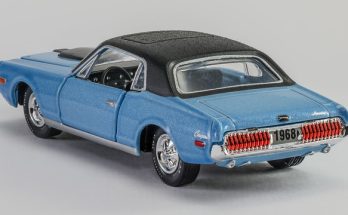
Choosing an Electric Utility Vehicle Manufacturer
Many managers of industrial and commercial facilities have used gasoline-powered utility vehicles for years. As they consider transitioning to new-generation electric vehicles, they’ll need to revisit key considerations.
These include cost, capacity, and charging infrastructure. Companies like Volvo Trucks brought its zero-emission VNR Electric to market in late 2019.
These vehicles are ideal for low-speed logistics and cargo services. They have higher efficiency and practical usability than traditional models.
Benefits
EVs have a number of benefits, including reducing pollution and noise. They can easily maneuver through city streets or narrow, winding roads in historic town centers without causing traffic jams. Moreover, they have zero harmful emissions and can save money on fuel costs. They also require significantly less maintenance than conventional vehicles. There are no mechanical components to maintain, and the batteries can be charged at work or in parking lots at a per-kilowatt rate.
While EVs aren’t the only source of air pollution – industry, coal-fired power generation, and construction are all major contributors – they are one of the easiest Electric Utility Vehicle manufacturer sources to address. By eliminating their tailpipes, EVs directly reduce harmful pollutants and carbon dioxide in local communities. This is a significant benefit for urban areas, where the impact of air pollution can be particularly acute.
In addition to improving the environment, EVs can provide new opportunities for jobs in the manufacturing sector. Companies that invest in EVs can create more high-quality manufacturing jobs and provide workers with greater training and career pathways. Additionally, a shift to EVs can improve overall workplace productivity and enhance employee satisfaction.
Applications
A battery-powered Electric Utility Vehicle (EUV) is an environmentally friendly alternative to conventional gasoline-powered vehicles. EVs are powered by lithium-ion or lithium-polymer batteries, which have higher energy density, lower charging time, and longer life than traditional lead acid batteries. They also have lower emissions and fewer environmental impacts than their fossil-fuel counterparts. This makes them ideal for many applications, including logistics & delivery, public sector, recreation & tourism, and agriculture.
Several manufacturers are focusing on the development of EVs to reduce carbon footprints. For example, in 2021, the US-based Club Car unveiled a pure electric vehicle named REX that is suitable for low-speed commercial transport. Other manufacturers include Goupil, Taylor Dunn, Alke, Columbia Vehicle Group, and Polaris, among others.
An EV is a great solution for companies that want to cut costs and minimize their environmental impact. EVs have less moving parts than gas-powered vehicles, which results in lower maintenance costs and fuel bills. Additionally, a well-designed electric vehicle uses a fraction of the energy of a conventional gas-powered vehicle.
The e-car industry is thriving and growing as more companies switch from conventional fleets to EVs. However, making this transition isn’t a simple task. It requires careful financial planning and consultation with chief financial officers or other relevant financial counsel to ensure a smooth transition. Many organizations are taking the plunge, with some of them committing to replace all their gasoline-powered vehicles by 2025.
Costs
When compared to traditional gas-powered vehicles, EVs save money in up-front costs and ongoing operating expenses. Up-front costs include the purchase price and vehicle tax credits. These can shave thousands off an EV’s cost tag. Ongoing operating expenses include electricity and maintenance costs. These can vary by region. Some EV owners take Electric Sightseeing Car manufacturer advantage of off-peak electricity rates, which can lower the total cost per mile driven.
Electrification also reduces depreciation. This is because EVs have a simpler design and require fewer mechanical parts. The battery pack is more durable and can last for more than a decade. However, this technology is new enough that the market for replacement batteries is not yet mature. The price for a battery pack can run $10,000 or more.
Businesses can also minimize operational costs by using advanced data analytics and fleet management tools to improve energy efficiency. This can help them reduce the energy consumption of their EVs and lower the environmental impact of their operations. For example, a business can install solar panels and other renewable energy technologies to offset its electricity use. This can reduce the dependency on the electric grid and lower long-term operating costs.
EVs are quiet and produce no emissions, which makes them an excellent choice for transporting medical-grade equipment across a corporate campus or hospital. Moreover, they can be used indoors without disturbing patients or staff members. EVs also meet sustainability goals, demonstrating an organization’s commitment to the environment and helping attract environmentally-savvy employees.
Manufacturers
Many of these vehicles are designed by Alke and produced for companies and individuals that need a high level of quality, reliability and performances. These vehicles are also very versatile and can be used in a variety of different situations. In addition to their main functions, they can be equipped with a wide range of optional out-fittings.
These vehicles are powered by lithium-ion batteries and can be operated for long distances without stopping to recharge. They have a much lower carbon footprint than traditional petrol or diesel vehicles and can be used in areas where fuel is scarce or unavailable.
The market for electric utility vehicles is expected to grow significantly over the next few years. This is due to increasing awareness about the environment and a growing number of consumers who want to reduce their carbon footprints. In addition, manufacturers are focusing on developing new battery technologies that can increase the driving range of their vehicles.
Some of the top electric vehicle manufacturers include Polaris, Zero Motorcycles, and BMW. These companies are making great strides in the field of EV technology, and their offerings can be a good fit for your needs.
Other reputable EV manufacturers are focusing on improving their existing models and creating new ones. For example, BMW has recently unveiled an electric version of its X3 SUV. This model features a powerful motor and a spacious cargo area. It also comes with an improved infotainment system, a new display, and new LED headlights.

